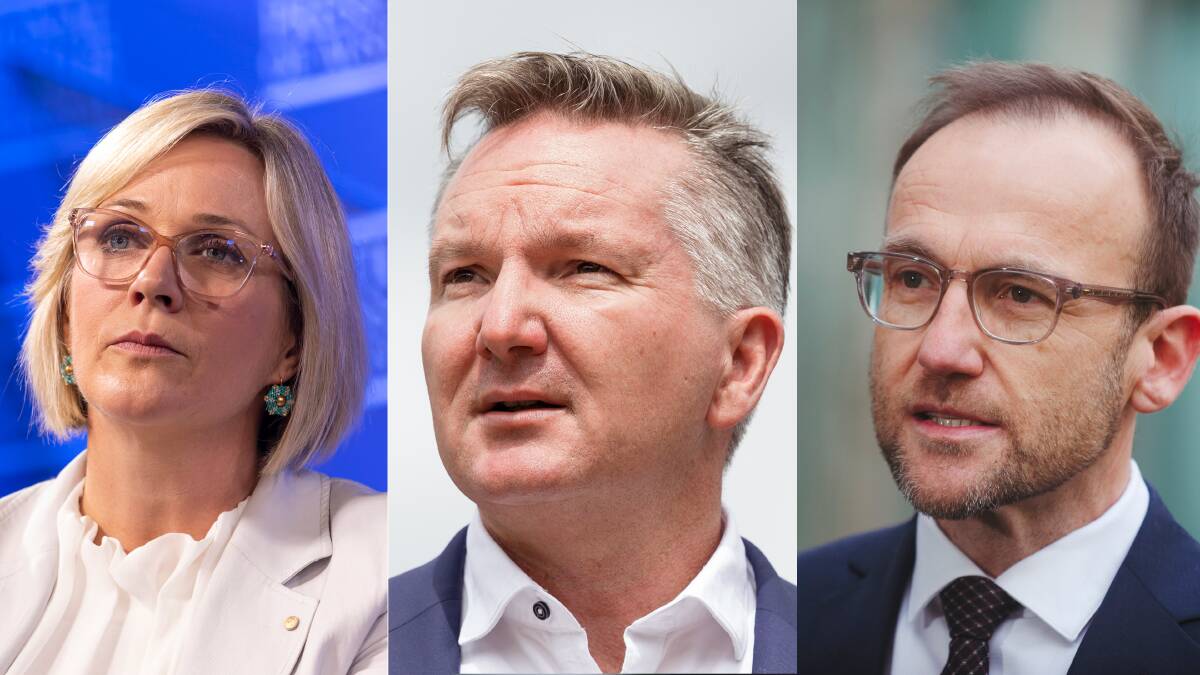
Peter Dutton's Coalition has confirmed it will oppose Labor's signature climate bill, leaving the fate of the legislation in the hands of the Greens.
Opposition MPs on Tuesday morning agreed with a proposal from their energy spokesman Ted O'Brien to oppose the Labor bill, and instead focus on developing a climate policy with a focus on nuclear energy ahead of the next election.
Mr O'Brien told colleagues that the bill was "not necessary" because Labor's 43 per cent 2030 emissions reduction target had already been submitted to the United Nations.
The Coalition has committed to developing a "credible and detailed" energy policy ahead of the next election, leaving the door open to raising the emissions reduction targets which Scott Morrison took to the May poll.
Nuclear is set to be a central plank in that plan, with the opposition announcing an internal review into the role the contentious energy sources could play in the future.
Liberal leader Peter Dutton said it was "high time that Australia had an honest and informed debate" about pivoting to nuclear energy.
"Today, I initiated a formal internal process to examine the potential for advanced and next-generation nuclear technologies to contribute to Australia's energy security and reduce power prices," Mr Dutton said.
The Greens hope to finalise their position on Labor's climate bill on Tuesday night, as the party wrestles with whether to support legislation which marks an "incremental step forward" but is considered inadequate for tackling global warming.
Leader Adam Bandt will convene a rare second party room of the day at 6.45pm on Tuesday as he attempts to resolve internal tensions on its position on the government's signature bill, which includes legislating a 43 per cent 2030 emissions reduction target.
The Greens' stance is important because it has the numbers to torpedo the Albanese's government's bill in the Senate.
Labor has stated that it would progress its climate agenda even if it can't get the bill through parliament, although its strong preference is to legislate the targets to provide certainty to investors and avoid damaging Australia's international reputation.
Mr Bandt last week signalled the Greens could support the bill after securing some concessions during talks with Climate Change Minister Chris Bowen.
READ MORE:
The Greens are pleased the bill clarifies that the 43 per cent target is a floor rather than a ceiling on the government's ambitions, and have welcomed provisions which would make it harder for government agencies to invest in fossil fuel projects.
But Labor's refusal to put a blanket ban on new coal and gas projects remains a sticking point for the Greens, who are also adamant that a 43 per cent 2030 target is too low.
Greens members didn't reach a consensus position as a "diversity of opinions" on Labor's climate bill were expressed at a party room meeting on Tuesday morning.
But the party is "very keen" to reach a shared position when it meets for a second time on Tuesday night, with a vote on the bill expected in the House of Representatives before the end of the week.
More to come.



